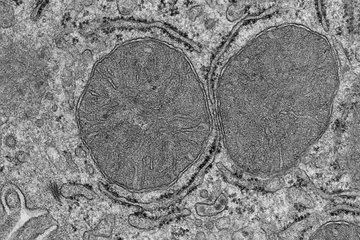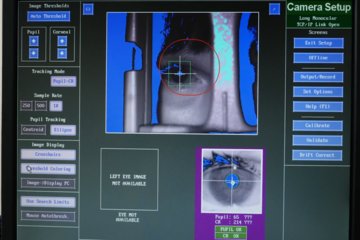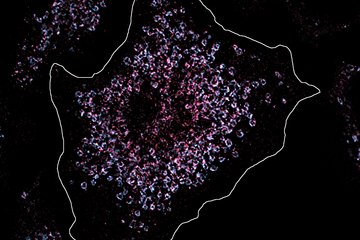Novel cancer therapy enters clinical trials
CDK7 inhibitor stops tumor growth in several types of cancer
Qurient, a clinical stage biotech company from Korea, received a clearence from the U.S. Food and Drug Administration for its investigational new drug (IND) application for Q901, a small molecule oncology drug candidate targeting cyclin dependent kinase 7 (CDK7). The CDK7 project originally emerged from a scientific collaboration of the Lead Discovery Center with research groups from the Westfälische Wilhelms-University of Münster and the Max Planck Institute for Immunobiology and Epigenetics in Freiburg.

The company plans to enroll up to 70 patients with advanced solid tumors in a phase 1/2 clinical study taking place in the United States. The goal of the study will be to determine the maximum tolerated dose, dose-limiting toxicities, and the recommended Phase 2 dose of Q901. The study is expected to start in 2Q2022. “IND clearance for Q901 is an important step forward in developing this novel drug candidate that may provide a new alternative treatment to patients with relapsed or refractory malignancies,” says Kiyean Nam, CEO of Qurient. “We look forward to initiating the clinical study for Q901 and presenting additional nonclinical efficacy data of Q901 in various cancer models at an upcoming scientific meeting.”
Q901 is a highly selective CDK7 inhibitor that has been shown in in vitro studies to only inhibit CDK7 in the human kinome. CDK7 is a master regulator of cell cycle checkpoints and an essential component of the transcription machinery. Additional data from preclinical studies have demonstrated that selective inhibition of CDK7 specifically kills cancer cells with aberrant cell division cycle or transcriptional regulation. Nonclinical pharmacology studies of Q901 have demonstrated that the selective inhibition of CDK7 exerts tumor growth inhibition in a number of murine cell-derived and patient-derived xenograft models, including breast, ovarian, prostate, pancreatic, small-cell lung, and colorectal cancers.
Qurient licensed the CDK7 inhibitor program at lead stage from Lead Discovery Center (LDC) and the Max-Planck Society and further optimized the program, completed the IND-enabling studies, and submitted the IND application.
Second CDK-selective inhibitor from the LDC pipeline
“We are thrilled about the second CDK-selective inhibitor from the LDC pipeline to reach cancer patients. The nomination of Q901 for clinical development emphasizes the translational competence of the LDC and represents an extremely important milestone,” adds Bert Klebl, CEO and CSO of the LDC. “Starting out with an early-stage and grant funded academic collaboration with two academic partners, and strongly supported by additional financing from the Max Planck Foundation, the LDC has launched this journey to identify and generate mono-specific CDK7 inhibitors. After an initial animal proof-of-concept, the CDK7 assets were licensed to our strategic collaboration partner, Qurient. We respectfully appreciate our ongoing partnership with Qurient, who are now moving the second joint program, after Q702, forward to clinical trials. While licensing these projects and jointly starting the spin-off, QLi5, we have since built a sustainable and strong partnership with Qurient, with more to come, focusing on the translation of innovative biology and drug discovery programs from the LDC’s academic network.”
“Qurient has proven to be the ideal partner for this project, and we are more than happy about the results of this strategic partnership,” says Dieter Link, patent and licensing manager at Max Planck Innovation, the technology transfer organization of the Max Planck Society, which led the licensing to Qurient at the time together with the LDC.
The CDK7 inhibitor project and other projects have been supported in part by private sponsors and charities, especially the Max Planck Foundation, which supports many Max Planck research projects and researchers, including the most recent Nobel Laureates at the Max Planck Society.












